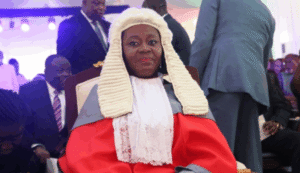By: Richard A. Wiafe, CEO Gold Coast Advisors, PhD Candidate
1. Introduction
Private equity (PE) and venture capital (VC) have become essential tools for funding high- growth companies, especially in developing countries where traditional financing options can be hard to come by. In Sub-Saharan Africa, and particularly in Ghana, PE is gaining recognition as a crucial means of fostering entrepreneurship, boosting productivity at the firm level, and sparking innovation in key sectors like agriculture, healthcare, infrastructure, and fintech (AVCA, 2023).
2. Ghana’s Private Equity Market: Overview and Trends
As of 2023, Ghana’s private equity sector was valued at around USD 6.8–7 billion in total assets under management, with about 35 active PE/VC firms either operating directly or through regional offices (ICLG, 2023). Ghana stood at 10th place among African nations for PE inflows, bringing in over USD 291 million in private equity just in 2023 (ABC News Ghana, 2023).
3. Institutional and Regulatory Environment
Several public institutions are pivotal in shaping Ghana’s PE landscape, including the Venture Capital Trust Fund (VCTF), Development Bank Ghana (DBG), and the Securities and Exchange Commission (SEC). However, despite their efforts, Ghana still lacks a comprehensive legal framework for limited partnerships—an internationally favored structure for PE/VC—which forces many funds to set up shop in Mauritius or other locations (B&FT, 2022).
4. Challenges Facing PE Financing in Ghana
Ghana’s PE scene faces several hurdles, including legal and regulatory obstacles, limited exit strategies, macroeconomic volatility, hesitance from institutional investors, and resistance from entrepreneurs. The lack of a limited partnership law and underdeveloped capital markets are particularly challenging for fund managers and investors (ICLG, 2023; GNA, 2024).
5. Regional Comparisons
When you stack Ghana up against Nigeria, Kenya, and South Africa, it’s clear that Ghana’s private equity (PE) scene is on the smaller side and grappling with more legal challenges. In contrast, Kenya and South Africa boast stronger legal frameworks and a higher level of participation from institutional investors, which makes them more appealing to PE fund managers (AVCA, 2023).
landscape gets a makeover. Key steps to consider include passing a Limited Partnership Law, encouraging local institutional investors, improving exit markets, and boosting fund transparency.
ABC News Ghana. (2023). Ghana attracts $291M in private equity investments, ranked 10th in Africa.
African Private Equity and Venture Capital Association (AVCA). (2022). PE/VC in West Africa Report.
AVCA. (2023). Africa Private Capital Activity Report 2023. Retrieved from https://avca.africa
Business and Financial Times (B&FT). (2022). Legal regime affecting private equity funds in Ghana. Retrieved from https://thebftonline.com
Development Bank Ghana (DBG). (2024). DBG launches Fund-of-Funds to support VC/PE firms. Retrieved from https://gna.org.gh
Ghana News Agency (GNA). (2024). DBG to support venture capital and private equity industry. Retrieved from https://gna.org.gh
Ghana Venture Capital and Private Equity Association (GVCA). (2025). 4th Annual Conference Report. Retrieved from https://gvca-ghana.org
ICLG. (2023). Private Equity Laws and Regulations – Ghana 2023. Retrieved from https://iclg.com
References
“Private Equity Inflows into Ghana (2019–2023)”
6. Case Examples
Some standout PE deals in Ghana include PEG Africa securing $25 million from CDC Group and Injaro Agricultural Capital making strides in agro-processing investments. These examples really showcase the growing interest from investors in inclusive and sustainable business models (AVCA, 2022).
7. Future Outlook and Recommendations
Ghana’s PE market has a bright future ahead, especially if the legal and regulatory landscape gets a makeover. Key steps to consider include passing a Limited Partnership Law, encouraging local institutional investors, improving exit markets, and boosting fund transparency.
ABC News Ghana. (2023). Ghana attracts $291M in private equity investments, ranked 10th in Africa.
African Private Equity and Venture Capital Association (AVCA). (2022). PE/VC in West Africa Report.
AVCA. (2023). Africa Private Capital Activity Report 2023. Retrieved from https://avca.africa
Business and Financial Times (B&FT). (2022). Legal regime affecting private equity funds in Ghana. Retrieved from https://thebftonline.com
Development Bank Ghana (DBG). (2024). DBG launches Fund-of-Funds to support VC/PE firms. Retrieved from https://gna.org.gh
Ghana News Agency (GNA). (2024). DBG to support venture capital and private equity industry. Retrieved from https://gna.org.gh
Ghana Venture Capital and Private Equity Association (GVCA). (2025). 4th Annual Conference Report. Retrieved from https://gvca-ghana.org
ICLG. (2023). Private Equity Laws and Regulations – Ghana 2023. Retrieved from https://iclg.com





One thought on “Private Equity Financing in Ghana:Trends, Challenges, & Regional Comparisons ”
Ghana’s private equity sector shows promise, yet faces hurdles like regulatory gaps. Imagine navigating these challenges like playing Slope Game; each obstacle requires skill and strategy. While Ghana ranks tenth in Africa for PE inflows, its legal framework needs strengthening compared to Kenya and South Africa. Overcoming these obstacles is crucial for attracting more investment and fostering growth in key sectors. It is just like getting a high score in Slope Game!